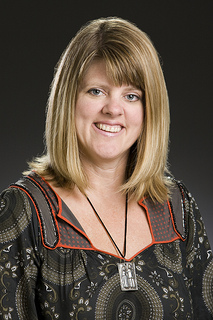Human Sciences to screen "REJECT" film on April 2
Wednesday, March 12, 2014

The College of Human Sciences at Oklahoma State University will host a film screening
of “REJECT” as a part of Human Sciences Week 2014. The film will be shown on April
2 at 7 p.m. in the Student Union Theater.
“REJECT” is the first documentary film to examine the universal experience of social
rejection. With a blend of scientific evidence and personal stories, the film is driven
by a core idea – that social rejection has a profound impact on human life.
Human Development and Family Science Professor Dr. Amanda Harrist served as an expert
for the film offering research-based advice regarding the long term effects of rejection
and bullying.
Two personal stories are woven throughout the film, one of them centering on a Stillwater,
Okla., student. Justin, a 5-year-old son of Mexican immigrants, who has already been
labeled a troublemaker at school. In the film he finds himself in a new classroom
under the watchful eye of teacher Terry Varnell, who understands that Justin needs
boundaries, and more importantly, to feel accepted.
The film was inspired by Dr. Herbert E. Thomas, who wrote a book called The Shame
Response to Rejection. Working in a maximum-security prison for 30 years, he witnessed
a connection between the experience of rejection and physical pain.
The film aims to raise public awareness about the serious consequences of interpersonal
rejection in its many forms – bullying, parental neglect, race discrimination and
other forms of social rejection.
It speaks to parents, teachers, administrators, organizations that train teachers,
coaches, mental health professionals, clergy, counselors, juvenile judges, office
managers—that is, anyone entrusted with influence over others and in a position to
foster acceptance.
